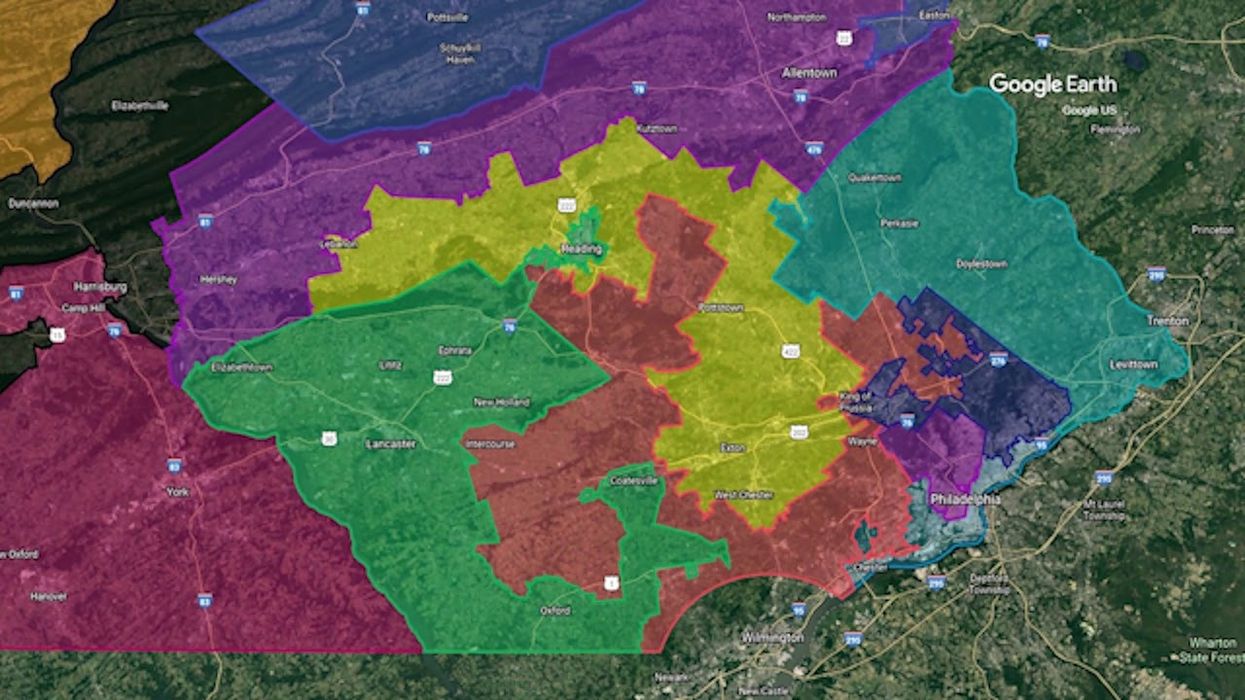The Fourth of July commemorates the abiding right of the governed to alter or abolish any form of government that ignores the people's voice. The Declaration of Independence, signed 244 years ago last week, lists repeated injuries and usurpations that deprived the colonists of a voice in the establishment of laws, concluding: "In every stage of these oppressions we have petitioned for redress in the most humble terms: Our repeated petitions have been answered only by repeated injuries."
Supporters of redistricting reform considered those words over the holiday weekend with sadness. Some of us have spent 30 years asking for redress of an unfair redistricting process and an increasingly intransigent legislature.
More recently, we have attempted every lawful avenue of request, petitioning our representatives in Harrisburg in every way we know — with meetings, calls, emails, letters, postcards, op-eds, billboards, radio ads, petitions and resolutions of support. All have been met with silence, or with empty statements of support by those who could schedule a vote or easily move this reform forward.
Many members of the General Assembly, from both sides of the aisle, applaud and affirm our efforts. They know that the current system puts far too much power in the hands of just a few leaders — allowing men (they are all men) elected by a tiny fraction of the state's voters to draw district lines, set the legislative agenda and lock out any voice of dissent.
Those who hold the levers of power have ignored or blocked our continued petitions.
I write this on behalf of 70 members of the Fair Districts PA team. In the past month we have sent letters signed by hundreds of constituents to the Republicans who run the Senate, Joe Scarnati and Jake Corman, and Chairman John DiSanto of the Senate's State Government Committee. No response.
We have asked the new speaker of the House, Republican Bryan Cutler, and Chairman Garth Everett of that chamber's State Government Committee for a vote on bills. But we have received no assistance and no acknowledgement of the pressing deadline, which has now passed, for enacting this reform.
Thousands of Fair Districts PA supporters have now seen how arbitrary and unresponsive our Legislature has become.
Dozens of us have asked legislators for meetings and had no acknowledgment of the request.
Dozens have contacted legislators only to be told: "I'll let you know if I have questions. I see no reason to meet."
Dozens have met with legislators who say "this is a Democrat bill" or "you're a Democrat group" — both statements are untrue — as if that negates the request or absolves them of the need to consider its merits.
And most of us have been told the following don't matter:
- Our number of cosponsors, the most of any bills in this or the last session.
- The local resolutions supporting us, representing more than 70 percent of the population.
- Our more than 100,00 petition signers.
- The polling consistently showing more than two-thirds of voters support a citizens commission to take the place of the Legislature in drawing election district boundaries.
We've watched with sadness as bills introduced with one or two sponsors speed through both chambers without public comment, expert testimony or any evidence of public support.
We've listened with sadness as friendly legislators explain that "The bills that move are the ones leaders choose. It has nothing to do with what voters want."
We grieve as fellow supporters turn away in disgust, with the sad refrain, "Why bother?"
Our government is in a dangerous place: unaccountable, unresponsive, deeply divided, less and less able to hear the voices of those it promises to serve.
Unless our legislators return this summer, it is now too late to amend the state Constitution and institute an independent commission for legislative redistricting in time for 2021. But there are other possible remedies: strong guardrails on the current redistricting processes, immediate attention to legislative rules that put far too much power in the hands of too few leaders.
But this is what we want most: A change of heart, a course correction in the halls of Harrisburg. The voices of all voters should matter to every legislator — not just the the party faithful in a handful of leaders' home districts.
Until this changes, nothing changes.



















Trump & Hegseth gave Mark Kelly a huge 2028 gift